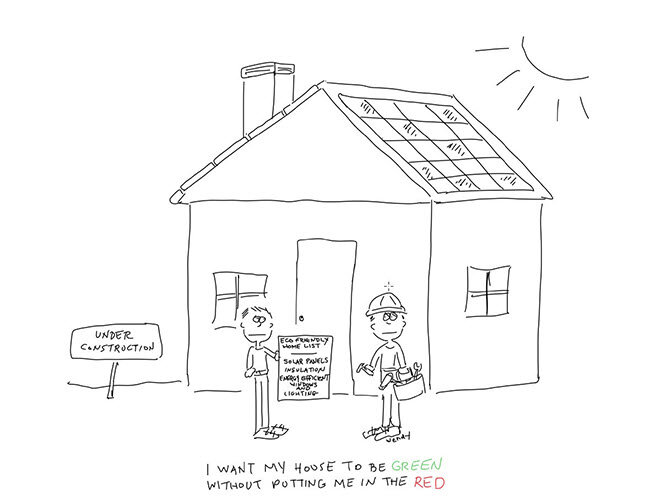By Brandon Dunn, Chief Capital Markets Officer
This year during Earth Week, I reflected on the many environmental and sustainability challenges facing our planet. I also thought about how the real estate industry and, specifically, we at Roc360, could contribute towards meaningful action in this regard. The questions are many and the issues are complex, and I don’t claim to have all the answers. But starting a conversation about how to make the real estate industry more green is, I think, a great first step. We’re all in this together, and I’d love to hear your ideas (DM us on our Twitter account @RocThreeSixty).
Recently, I watched the movie Is Love Enough — Sir?, a love story transcending class lines. A line from the movie has stuck in my mind. One of the main characters in the movie is an architect who urges his father, the head of their family-run construction business, to adopt more green initiatives in their building projects. The father responds, “I am all for green buildings, but not if we end up in the red.” This illustrates that real estate firms strive to make environmentally responsible choices but struggle with how to go about it profitably.
According to a recent report by S&P Global, global real estate consumes approximately 40% of world energy annually and accounts for more than 20% of greenhouse gas (GHG) emissions. Which means that the industry has a big responsibility and a long way to go. I’m encouraged by the indications that the trend towards more sustainable practices has already started, and it’s coming from within the industry.
The construction industry is already proactively adapting to the imperative of going green. Sustainability initiatives focus on building materials, energy efficiency, and waste management. Companies like Carbon Cure offer technologies to inject and capture recycled CO2 into the concrete mixing process during construction. Even the companies focusing on refurbishing existing buildings are adopting more sustainable approaches. Using energy- and water-efficient appliances, improving energy management by using smart meters, and engaging with tenants on their impact are just a few of the techniques that are gaining ground.
There are positive signs on the investment side as well. Like other sectors, real estate is also realizing the importance of directing investment dollars towards greener initiatives. At Roc360 and Haus Lending, we’re exploring ways to make residential projects more green while taking into consideration costs as well. We know that going greener does not only mean putting solar panels on your roof–it involves a more comprehensive and thoughtful approach at all stages of the real estate process, from funding through construction, to identifying best sustainability practices for homeowners. Our focus on Fix-n-Flip is a great indicator of our support for sustainability. Refurbishing existing homes is significantly friendlier to the environment, and also a faster way to meet the housing shortage in the U.S.
In the context of best practices, I’m a big believer in building up good habits one step at a time. Tiny changes can have remarkable results no matter what your goals are. An excellent book that champions this philosophy is James Clear’s Atomic Habits — well worth reading!
About the author
Brandon Dunn is the Chief Capital Markets Officer at Roc360. Brandon began his career as an attorney at IBM where he focused on antitrust and corporate law. He transitioned to Wall Street where he focused on various fixed income derivative products at institutions such as JP Morgan, Deutsche Bank, Smith Barney, and LF Rothschild. He later became Managing Director and Head of Structured Product Marketing at UBS.
At Roc360, Brandon is responsible for all capital markets related activity and investor relations.
